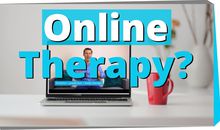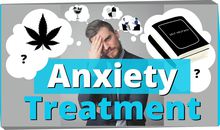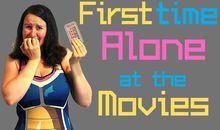Top 7 options for Anxiety Treatment
So you’ve got anxiety. And you want to know what your options are for treating it.
Well today I’m going to cover your 7 options and how effective they each are at treating anxiety!
You could go on holiday
Chill out on a beach. Have all your worries just melt away!
Research shows you can get a small improvement in anxiety and wellbeing.
But that it all disappears shortly after getting back from your holiday.
Or maybe win lotto, or get that promotion.
You’ve got money now, so surely you’ll be living it up.
Less anxious and much happier!
We’ll, studies comparing lotto winners wellbeing pre and post winning tells us that 6 months afterwards, you’re back to the same thinking styles you had before winning lotto and thus the same worries and the same level of wellbeing.
How about medication?
Doctors and psychiatrists have got stuff they can prescribe to sort out my anxiety right?
Well yeah, they do!
There are 3 commonly used for anxiety, 4 if you count anti-psychotics.
There’s the Benzodiazepines, Beta blockers & Anti-Depressants.
Benzos & beta blockers are used in the short-term typically, as they have various problems for people.
So let’s look at anti-depressants, mostly SSRIs or SNRIs.
How do they stack up?
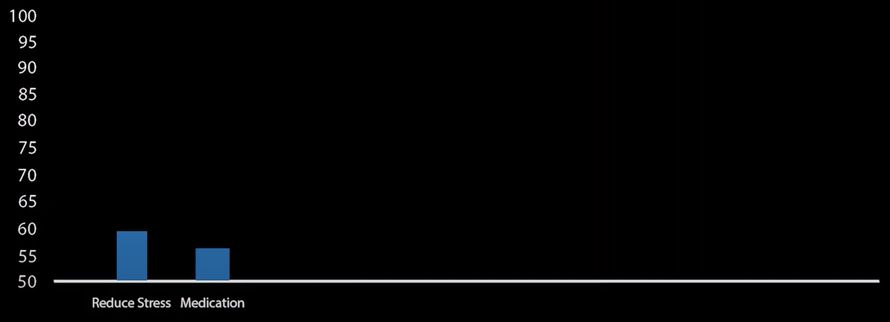
Ok, well how do herbal remedies compare?
Studies on substances like lavender, magnesium and kava end up somewhere around here.
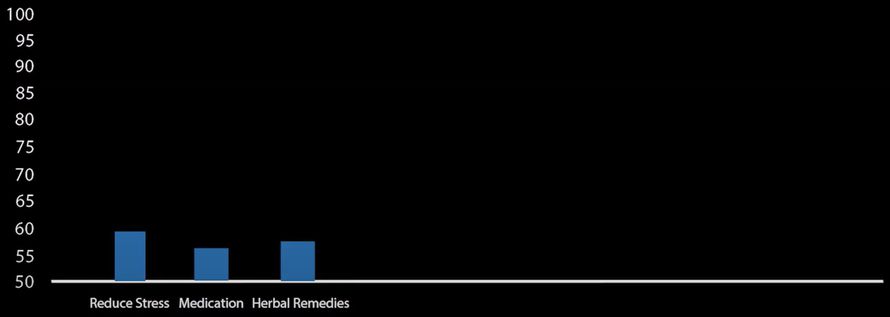
Cannabidol or CBD has some potential, but it’s unclear so far in the research as to quite how effective it is.
And regular old cannabis tends to negatively affect anxiety, due to the THC content.
Middle-range effect sizes all-round so far!
So these will all reduce my anxiety?
Well yeah, I mean taking a placebo will get you this kind of effect!
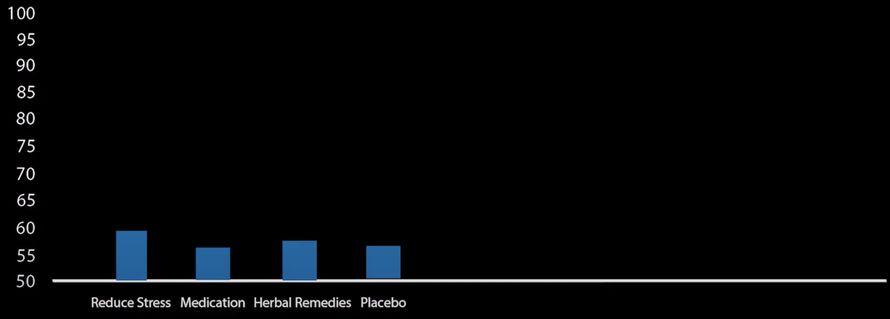
That’s basically where you convince your brain to sort itself out through unknown mechanisms.
And no, you don’t have to be lied to for placebo to work!
So it’s worth considering the pros and cons of all these options - weighing up any side-effects.
What about super healthy stuff, like diet and exercise?
There’s actually a fair bit of research on how helpful diet and exercise can be for mental health.
Including anxiety.
There are a number of nutrient deficiencies and other physical problems that can mimic anxiety by stimulating the nervous system, increasing your heart and breathing rates, or sending distress signals to your brain.
Physical interventions like increasing micronutrients, eating healthier and getting more exercise can really help.
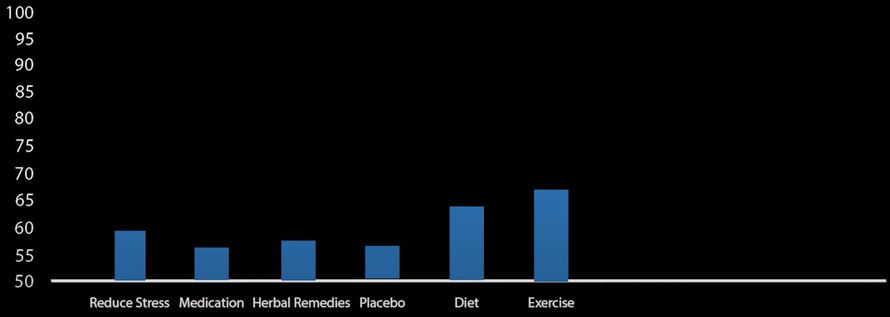
For people with low-level anxiety or depressed mood, these kinds of things can be enough to really improve things.
With all these so far, we’re talking about symptom reduction.
Take the substance, do the activity – get the improvement.
What about changing the way we think to reduce anxiety?
We’ve all read a self-help book before
Sometimes it feels like it changes our whole perspective on life!
And sometimes I feel like I’ve forgotten the whole thing by the time I’m done reading it.
So do self-help books on anxiety work?
Depends on if you apply it or not.
For those who do, there’s a pretty decent pay-off for self-guided treatments like this.
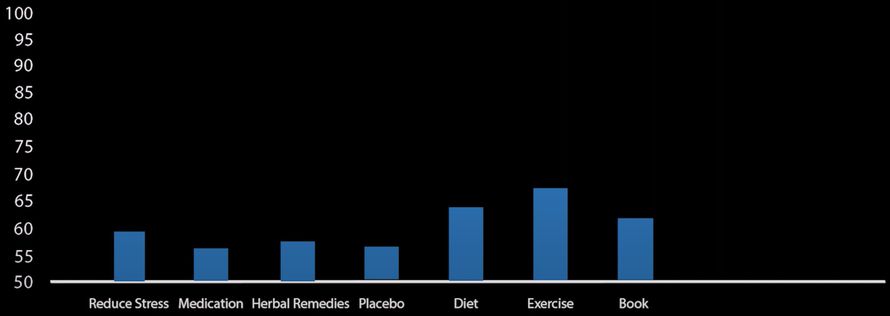
Now how about when you don’t do it all alone, you have a professional involved to help you?
There’s general agreement that therapy with a psychologist is top when it comes to treatment for anxiety
With this, we’re talking 80 to 96% of people experiencing a significant improvement (depending on whether you count the people who dropped out of the studies or not).
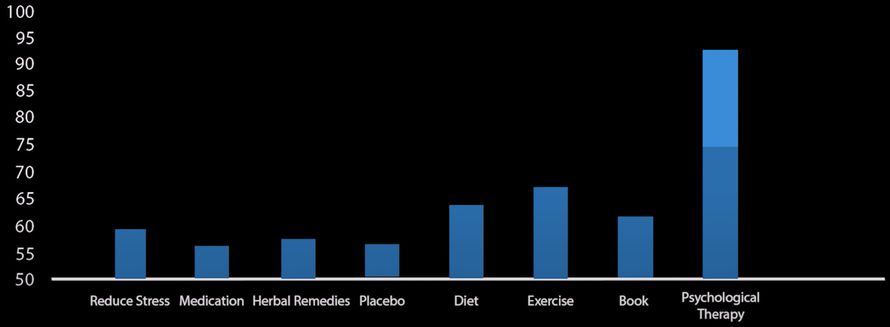
That is just incredible!
If it was a drug, it would be heralded as some kind of miracle wonder!
The problem is, its resource intensive.
You need a lot of very qualified people delivering this one-on-one.
What if there was another option?
What happens to that amazing effectiveness when you remove the one-on-one with the therapist and teach people the information and skills they need through an online portal?
Enter i-Therapy
This can be through online workbooks, comics,
or even better, video!
It’s extremely cost effective!
But does it stack-up in terms of results?
The answer may surprise you.
The answer is - yes.
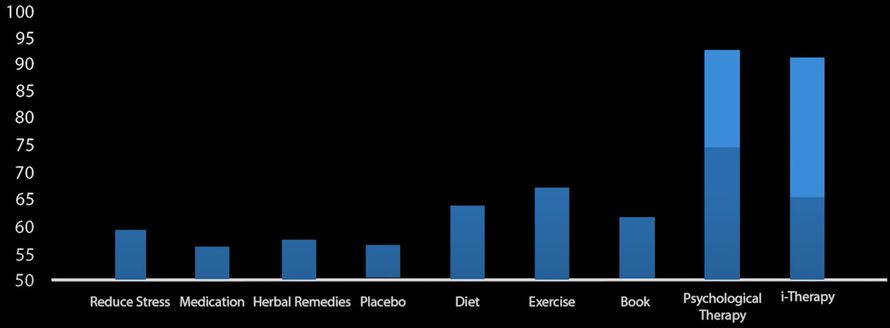
In a systematic review of more than 840 studies
it was found that i-Therapy is similar in effectiveness for the treatment of anxiety to seeing a therapist on-on-one!
Healthcare is famous for being slow when it comes to applying new research findings or adopting advantageous technologies.
With how versatile, accessible and effective i-Therapy can be for anxiety, let’s not miss out on this one!
Want to learn more about how to overcome anxiety?
Come along to our live masterclass – ‘The Simple Secret to Overcoming Anxiety’.

